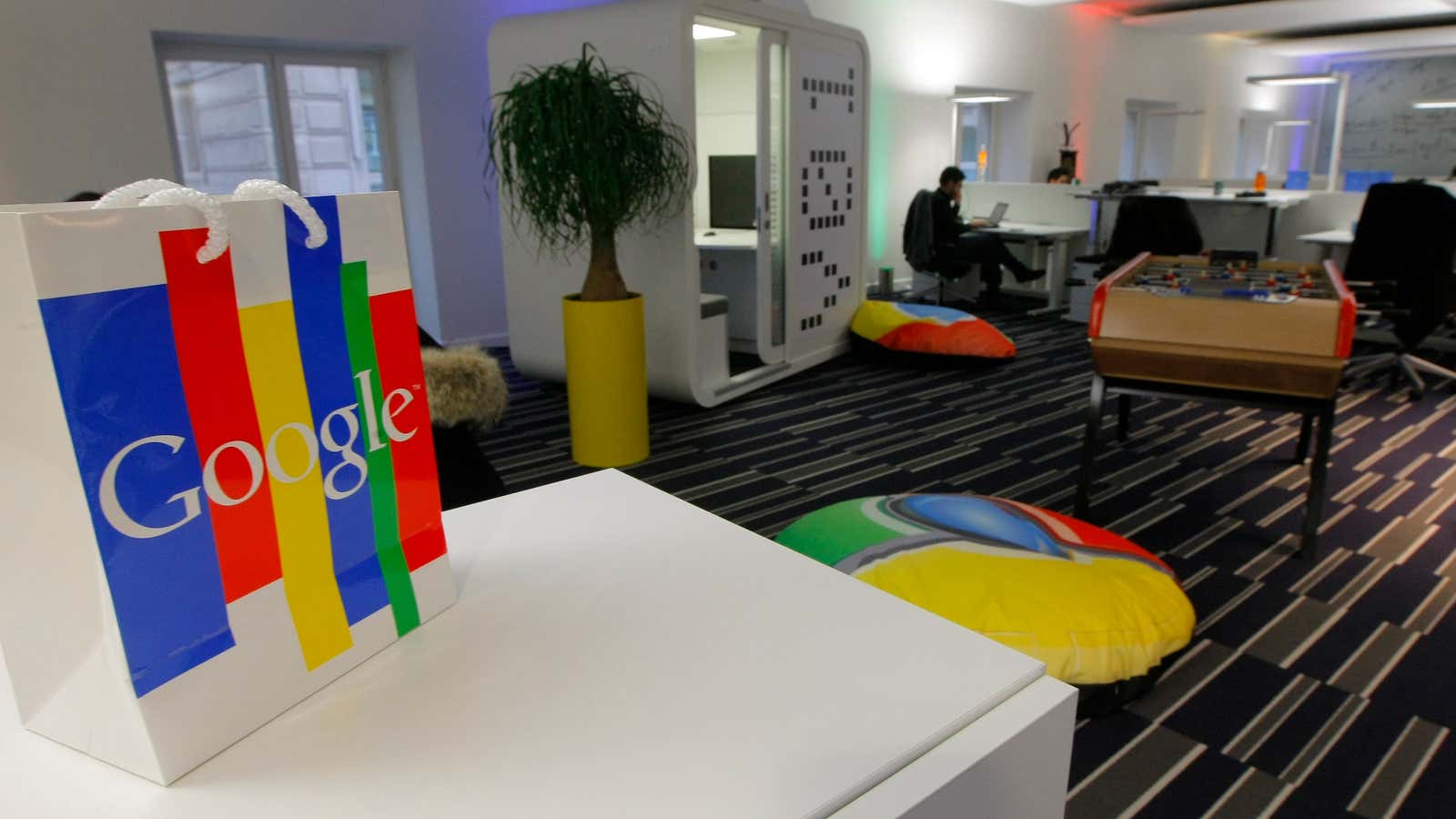Much has been made of Google’s free food and beautifully designed offices, but the truly distinctive thing about the company is the huge amount of research that goes into designing each perk, hiring policy, and management structure. It’s a scientific approach that, according to Google’s senior vice president of people operations, Laszlo Bock, is informed by the Framingham Heart Study, which started monitoring 5,000 people in Massachusetts in 1948 and continues to this day, providing long-term information about health, genetics, and even happiness.
The study inspired Google to create “gDNA”—a two-year-old study seeking a deep understanding of how people work that it plans to continue for a century, Bock wrote in the Harvard Business Review. The idea is to bring more rigor to management decisions.
“We all have our opinions and case studies, but there is precious little scientific certainty around how to build great work environments, cultivate high performing teams, maximize productivity, or enhance happiness,” Bock writes.
In the new study, the employees are the Guinea pigs. The company has more than 4,000 Googlers complete two anonymous, optional in-depth surveys each year. Anonymous employee surveys have been widespread since the 1930s. But this is a particularly ambitious long-term program, which Bock says will be applied in company policy as well as functioning as academic research.
The project may remind some of other projects at Google: the work the company’s human resources analytics departments have done on determining who to hire, which led it to de-emphasize college GPA and end its famous brain teasers, for example; or Project Oxygen, which focused on management.
Two years in, gDNA already has yielded some results. Bock shared a few key insights about work-life balance in the piece, pointing out that it is a growing problem for companies and people as technology and social media blur the line between the office and life. So far, the study has identified two major personal approaches to work-life balance, though Bock clarifies that this is a continuum, rather than a strict divide.
Segmentors
“They draw a psychological line between work stress and the rest of their lives, and without a care for looming deadlines and floods of emails can fall gently asleep each night,” Bock writes. “Segmentors reported preferences like ‘I don’t like to have to think about work while I am at home.’”
The study’s first two years have found that only 31% of Googlers fall into this category and successfully draw boundaries between work and life.
Integrators
“For ‘Integrators,’ by contrast, work looms constantly in the background,” Bock writes. ”They not only find themselves checking email all evening, but pressing refresh on gmail again and again to see if new work has come in.“
This category includes 69% of Google’s people, according to the study. Not surprisingly, about half of them wish that they could be more like “Segmentors.”
Google is already trying to address this problem, Bock writes. One approach is a program called “Google Goes Dark” at the company’s Dublin office, which asked people to leave their devices at the front desk before leaving for the night.
